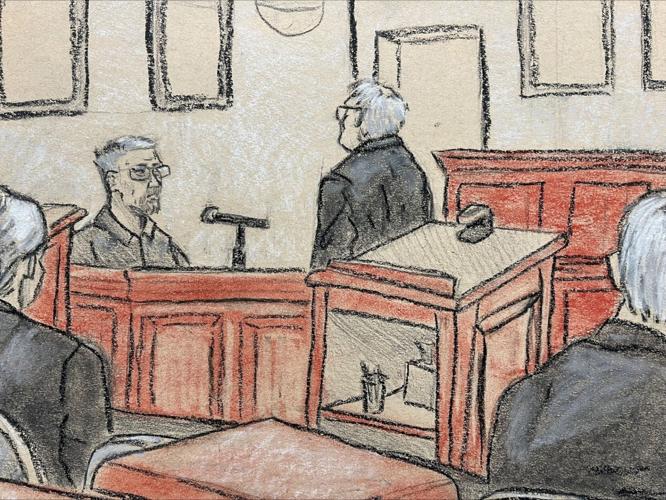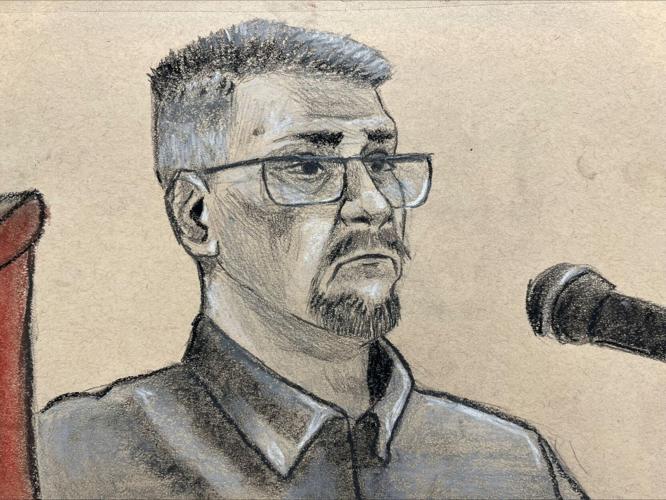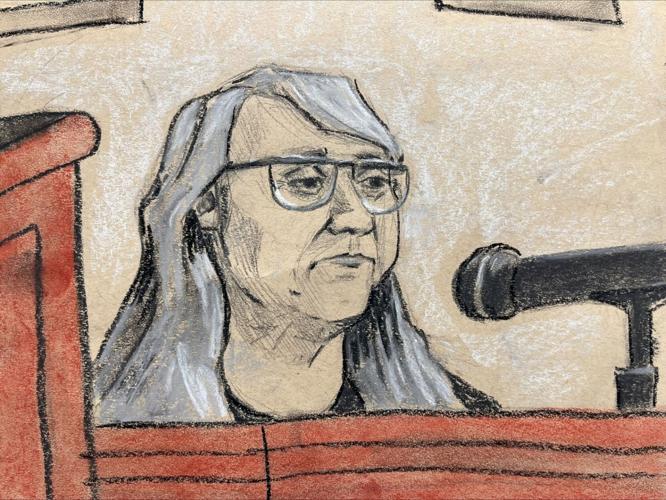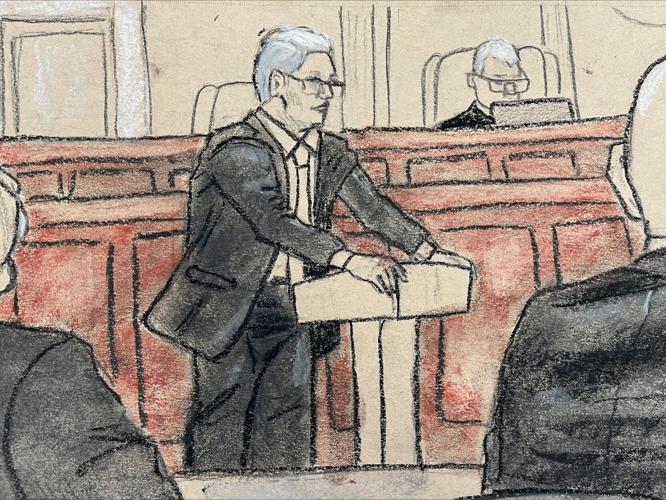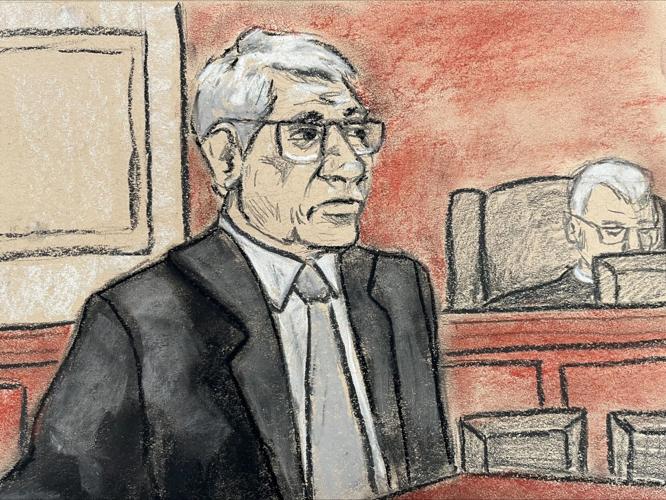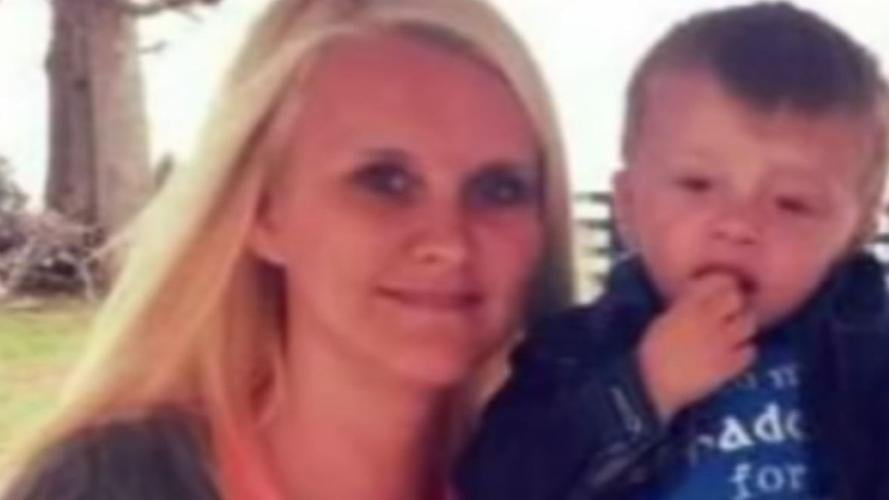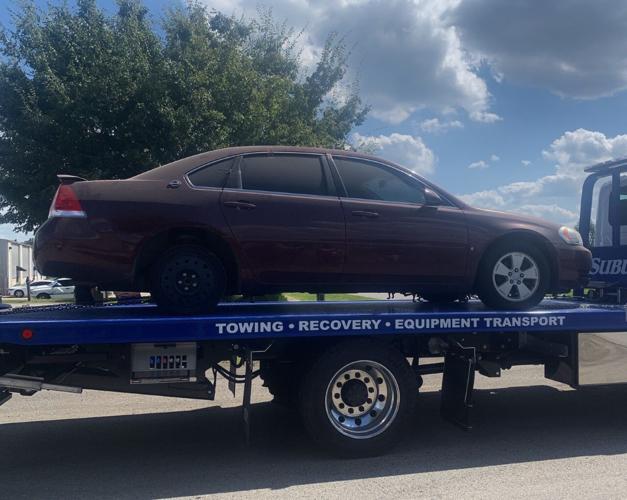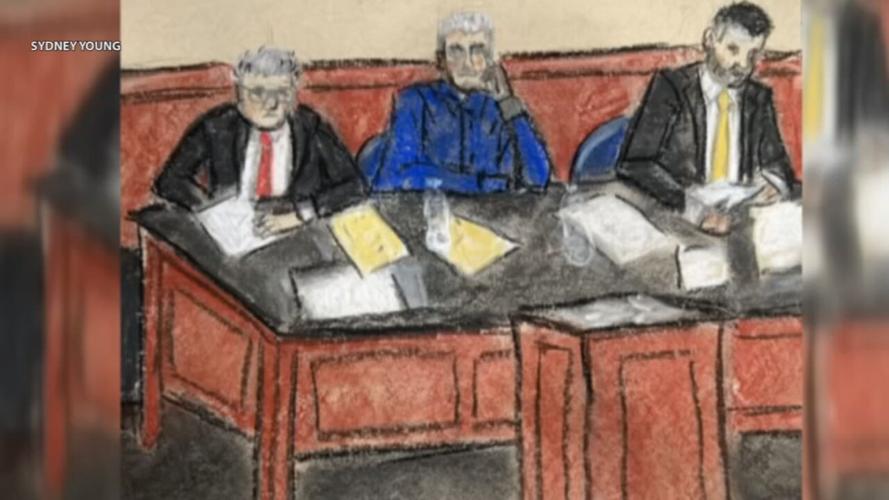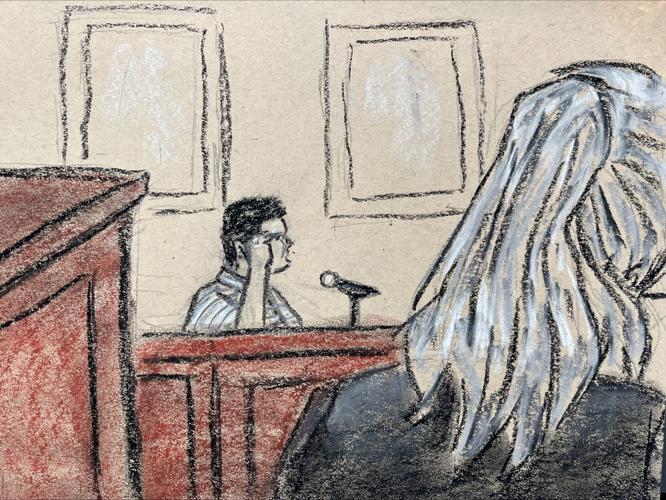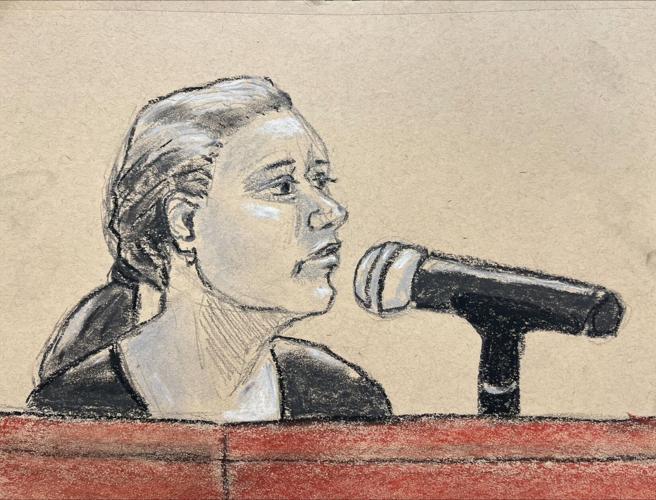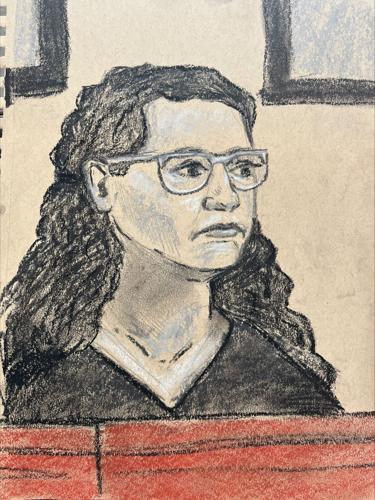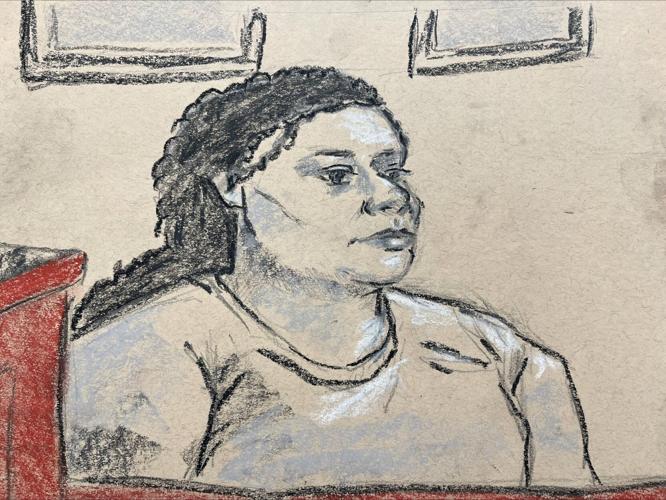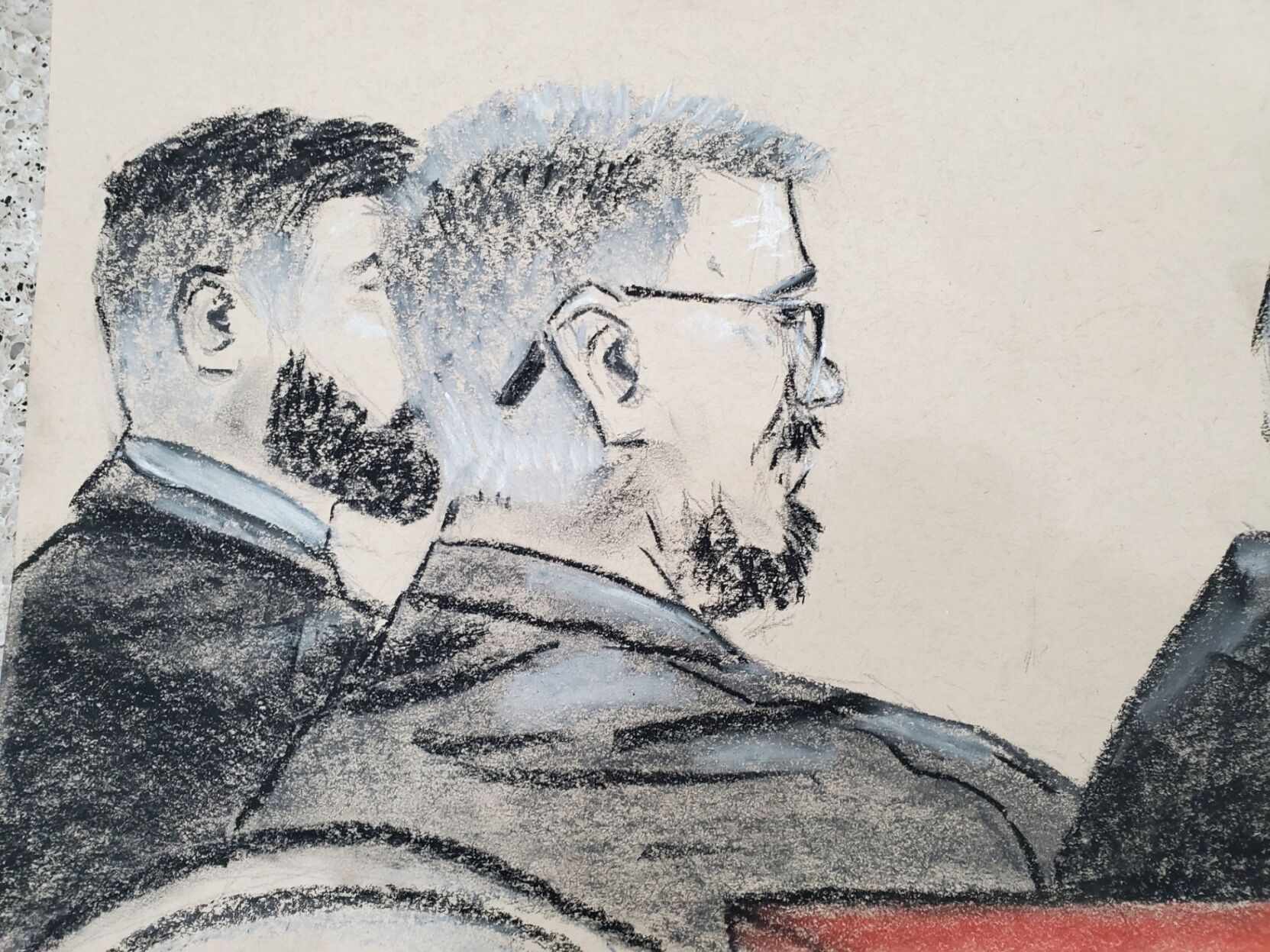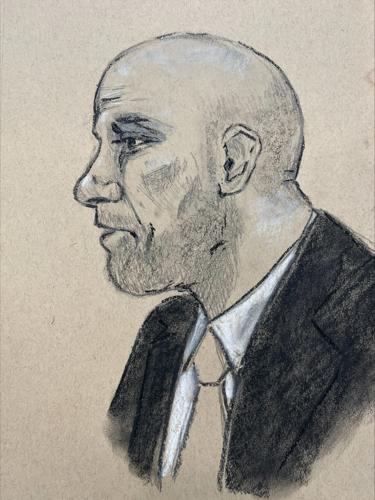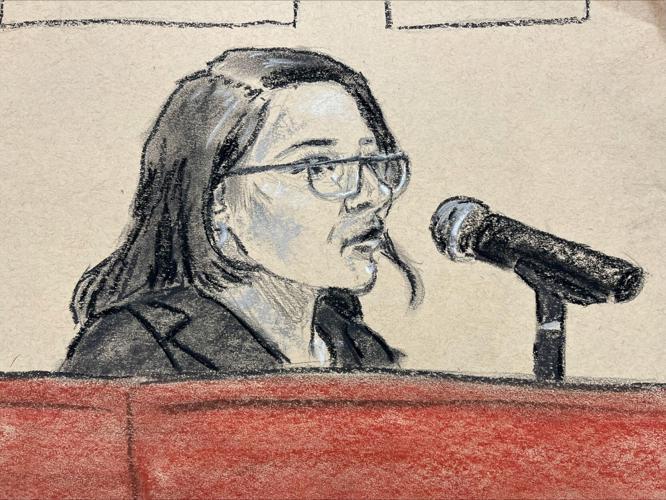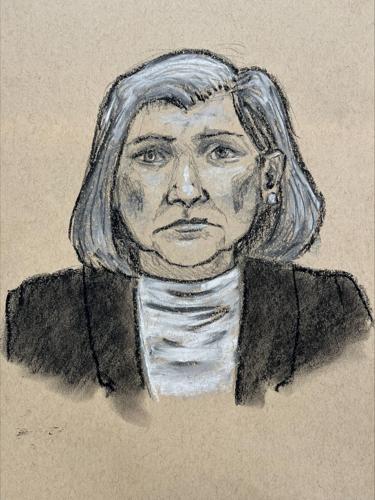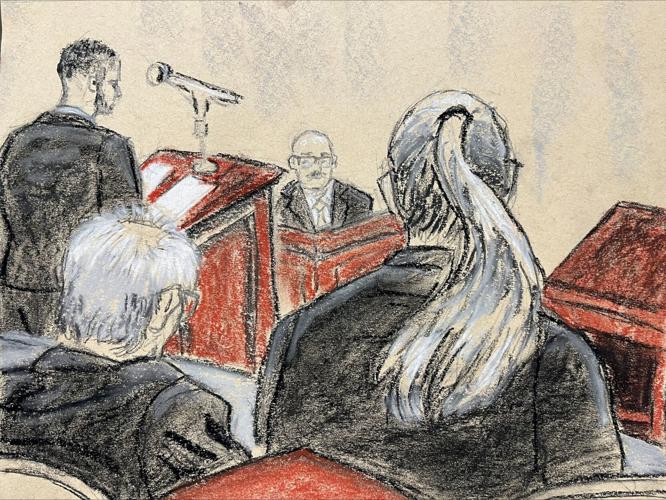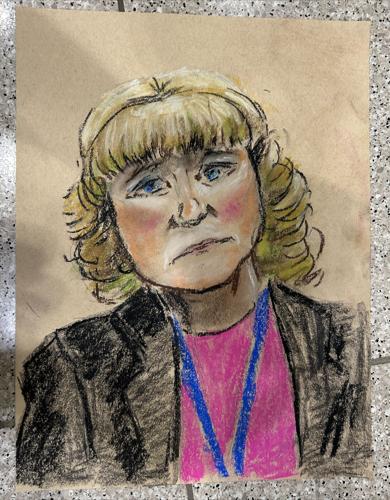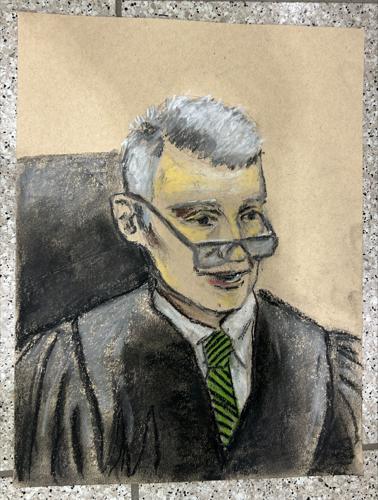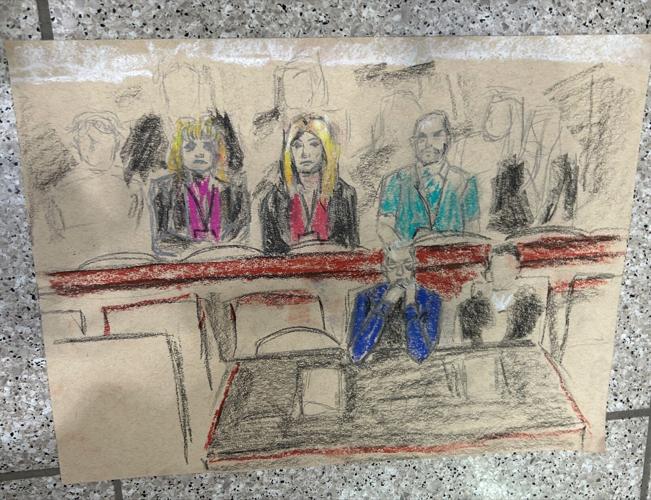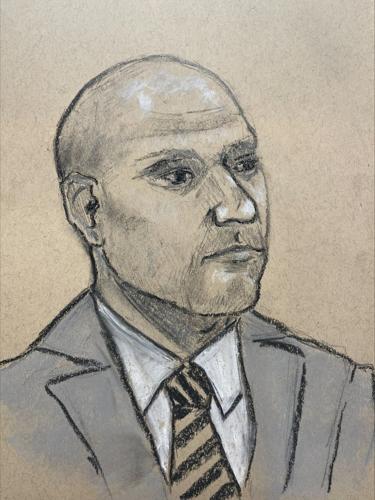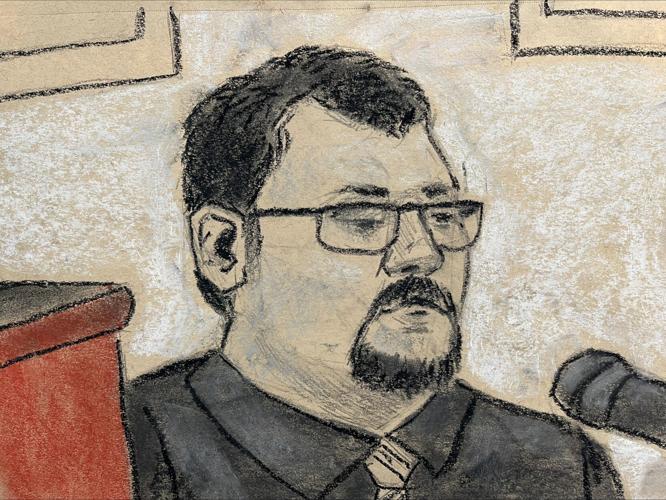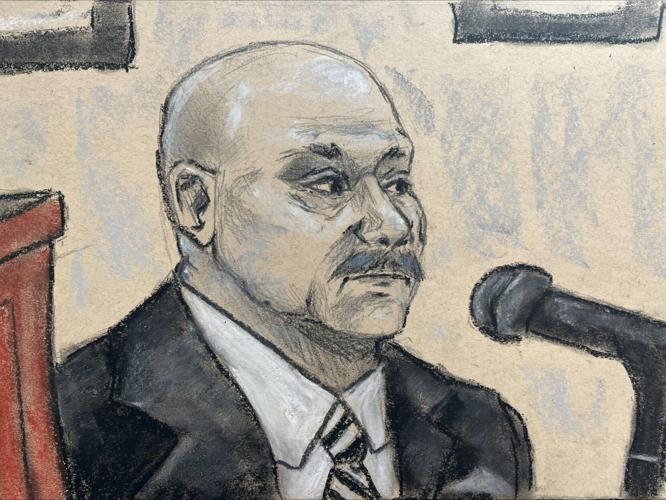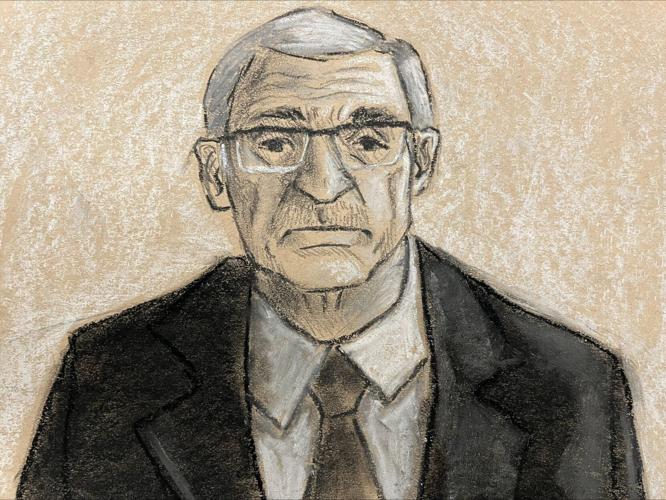BOWLING GREEN, Ky. (WDRB) -- The first trial in the murder of Crystal Rogers is close to wrapping up in Bowling Green, nearly 10 years after the Bardstown mother of five went missing.
The prosecution rested its case on Thursday in the trial of Steve Lawson, one of three men charged in connection with Rogers' disappearance and presumed death. Court was adjourned early when two witnesses for the defense were unable to appear. On Friday, the defense told the judge they would not require one of the witnesses to testify.
Rogers was last seen alive on July 3, 2015, during the Fourth of July weekend. Days later, her car was found abandoned — still running — on the side of the Bluegrass Parkway. Her purse and other belongings were inside. Despite years of searching, she's never been found.
Brooks Houck, Rogers' boyfriend at the time of her disappearance, is charged in connection to her murder along with Steve Lawson and Lawson’s son Joseph. Houck and Joseph Lawson will be tried together later this summer.
Steve Lawson's trial, which began Tuesday, is being held in Bowling Green instead of Nelson County because of massive publicity over the last decade. Lawson is represented by Louisville attorney Darren Wolff.
Below is a running blog of updates from the Warren County Justice Center:
4 p.m. CST
The jury recommended Steve Lawson to 17 years in prison and the formal sentencing is scheduled for August 6.
2:45 p.m. CST
Steve Lawson was found guilty on both charges, conspiracy to commit murder and tampering with physical evidence.
Sherry Ballard, mother of Crystal Rogers, cried and hugged family members as the verdict was read. Lawson is facing 25 years in prison and the sentencing phase has begun.
12:45 p.m. CST
The jury now has the case.
In his closing arguments, prosecutor Jim Lesousky said about Lawson, "This man, by his words, put himself in the middle of a conspiracy, an evil conspiracy."
Lesousky indicated that the evidence is overwhelming.
"He knew she was going to be killed," he said. "That was the plan."
Lesousky said Lawson had conversations where Houck told him he wanted his wife gone. In grand jury testimony, Lawson said he took that to mean "deceased."
"Brooks' plan was to kill this woman," Lesousky said.
He told jurors they need only review what Lawson told the grand jury when he testified in 2023 and testimony from those around him at the time Rogers disappeared.
"We know from his words and evidence he was an essential part in Brooks Houck's plan to kill this young lady," Lesousky said.
As for a motive, Lesousky told jurors Lawson also admitted that to grand jurors. Houck told him he would give him more business.
"That's why he did it," for money, Lesousky told the jury.
In defense, Darren Wolff admitted again that Lawson was guilty of tampering with evidence but said "that's the extent of his involvement."
Wolff said the prosecution didn't put on evidence to prove that Rogers was murdered.
"We still don't know what happened to Crystal Rogers," Wolff said, noting the case is still under investigation.
Wolff also said that Lawson had "no knowledge" that Brooks Houck intended to kill her and there was no evidence he agreed to take part.
"Where did we hear evidence he agreed to the planning of murder?" Wolff asked the jury.
10 a.m. CST Friday
The defense started the day by calling Barbara Jane Coulter, Steve Lawson's mother, to the stand. She was asked about watching a documentary about Rogers.
When asked about a phone call with Lawson while he was in jail, she said it was a very heated phone call and that she flat out asked him not to lie about what he did or knew. She also admitted that she grilled him about the case.
Coulter said there was a lot of cursing during the phone call.
The defense's last witness prompted gasps in the courtroom as Lawson took the stand, which can be a risky gamble for a defendant.
Lawson told the jury several times he doesn't know if Rogers is dead or if Houck has anything to do with her disappearance.
"I was just moving a vehicle," Lawson said. "That's what I was told."
Asked why he lied repeatedly during the investigation, Lawson said "I didn't want to man up and take the blame." He said he was involved in tampering with Rogers' after helping his son move it at the request of Houck. He testified he moved her seat forward because his son was much taller than Rogers and grabbed a mini baseball bat from the car.
When talking with Houck earlier, he told Lawson he wanted his wife "gone." Lawson said you mean gone like "deceased?" Lawson said he wasn't the man for it and Houck had a lot of people working for him, including a man named Charlie Girdley. Girdley testified Wednesday as to the details of that conversation. Girdley "giggled" at his potential involvement, Lawson said.
Lawson testified that neither man believed Houck was serious. "He laughed it off, same as I did."
Houck "never came out and asked me to kill Crystal Rogers," Lawson told the jury.
The prosecution asked Lawson why he didn't inquire as to why Houck wanted Rogers' vehicle moved.
"I don't know, I didn't ask," Lawson said. "I don't know why he wanted the car moved. I still don't know to this day."
Prosecutor Jim Lesousky told Lawson that he testified in front of the grand jury that he helped move the car because there was a deal to get more work from Brooks, which is who he worked for, but Lawson denied that saying he had asked for more work before July 2015.
Lawson said he never agreed to help aid Houck in Rogers' disappearance and that he doesn't know that he did anything to her.
When Lesousky asked again if Houck told him why he wanted the car moved, Lawson said no, “Why was I supposed to?”
1:30 p.m. CST Thursday
The defense's first witness after the prosecution rested Thursday was Dr. Karl Reich, a nationally renown forensic DNA expert.
Most of his testimony centered around the two hairs found in Rogers' car that were never tested. Detective Jon Snow, lead investigator on the case for the Nelson County Sheriff's Department, testified Wednesday that tape lifts of the hair were collected and sent to Kentucky State Police for further analysis, but they opted not to go through with the testing because it would have destroyed the hair.
Prosecutor Shane Young, while cross-examining Reich, said the hairs weren't tested, in part, because they were too long and didn't match any of the suspects' hair.
Reich said it's impossible to say if the hairs had any evidentiary value until they're tested. But the defense said the hairs could have been put in a national database.
"If they were important, they should have been tested," Reich said.
The defense's remaining witnesses couldn't make it to court Thursday, so the judge adjourned the courtroom. The defense will begin again at 8:30 a.m. CST Friday, with closing arguments expected later Friday morning.
10:45 a.m. CST Thursday
After the prosecution rested Thursday morning, the defense motioned to acquit Steve Lawson on his conspiracy to commit murder charge. Defense attorney Darren Wolff said, based on the evidence presented by the prosecution, it's reasonable the jury can't come to a guilty verdict on that charge. Prosecutor Shane Young replied the conspiracy charge requires there be an agreement, and there was an agreement between Houck and Steve Lawson.
Judge Charles Simms III then denied the motion.
The defense will call its first witness after lunch Thursday and wrap up by the end of the day. Simms told the jury closing arguments are expected to begin Friday morning.
The court is on break until 1 p.m. CST.
10:15 a.m. CST Thursday
The prosecution called its final witness Thursday and played the court two phone calls made by Steve Lawson from jail in January 2024. In the first, on Jan. 5, Steve Lawson's mother asked him what happened to Rogers. He replied he didn't know where her body was but acknowledged that Houck told him he wanted Rogers gone and he helped move her car.
His mother repeatedly chastised him for not going to police, to which he replied "you're right."
In the second call, made Jan. 9 to an unknown person, Steve Lawson again said he didn't know what happened to Rogers' body.
"You could have saved her," the person told Steve Lawson. "You knew for eight f****** years. You could have saved that girl's life and you didn't even bother."
Steve Lawson told the person there was no premeditation on his end, regardless of what anybody says.
Sherry Ballard, Rogers' mother, cried in the courtroom throughout the duration of the phone calls.
The prosecution rested its case at 10:15 a.m. CST.
9:30 a.m. CST Thursday
The defense began its final day of witnesses Thursday by calling Detective Mike Schafer with the Kentucky Office of Attorney General. Schafer, a former FBI special agent, interviewed Steve Lawson in 2020 at the Nelson County Sheriff's Office.
The court played a 20-minute clip of that interview before Schafer's testimony with the judge, jury and witnesses wearing headphones to hear the audio. However, Steve Lawson removed his headphones just about five minutes into the recording. Much of the interview centered on two phone calls made in the hours and days after Rogers disappeared between Steve Lawson and Brooks Houck.
Schafer referenced the cellphone data that also came up in Wednesday's testimony showing Steve Lawson's phone was near where Rogers' abandoned car was found on Bluegrass Parkway around midnight. The phone then traveled back to Bardstown and then to Thompson Hill Road in Coxs Creek, an area where several police agencies have search over the years in search of Rogers.
In the 2015 interview, Schafer said Steve Lawson told him he never touched the car, an admission that was later changed. And the defense, on cross-examination, said it's important to note that's not new information, and they've already said he's guilty on the tampering with physical evidence charge.
Schafer highlighted the slew of calls and text messages Steve Lawson made that night after Rogers disappeared. Notably, Schafer said there is a four-hour window on the morning of July 4 when he's on Thompson Hill Road, and, in the 2015 interview, Steve Lawson said he "did not recall being there."
Schafer also discussed a 2015 interview he conducted with Brooks Houck's brother, Nick, who he said "denied his involvement," while conducting a polygraph test. Schafer said he had information that led him to believe Nick Houck was involved and added it wouldn't surprise him if Nick and Rosemary Houck were co-conspirators, as Detective Jon Snow, lead investigator on the case for the Nelson County Sheriff's Department, said on the stand Wednesday.
The defense pointed out the phone data only says where the phone is, not where the person is.
Background
Lawson is charged with conspiracy to commit murder and tampering with physical evidence. His indictment alleges he "agreed to aid one or more persons in the planning or commission" of Rogers' murder and later "destroyed, mutilated, concealed, removed" or altered evidence on July 3 or 4, 2015.
Investigators said Steve Lawson worked in construction for Brooks Houck, Rogers' boyfriend at the time of her death who's charged with her murder. Lawson "does not dispute" he was at the location where Rogers' vehicle was found, running on the side of Bluegrass Parkway with her purse still inside.
"Lawson further admitted that Brooks Houck was trying to find someone to get rid of Crystal Rogers," the prosecution said in court records. "Other witnesses have offered evidence indicating that S. Lawson and Houck spend an inordinate amount of time together immediately preceding Rogers's disappearance."
In addition, witnesses came forward saying Lawson told them that Houck was trying to recruit him or someone else "to get rid of Rogers."
The evidence against Lawson is being revealed after he asked that the charges against him in the Rogers murder case be dismissed — or at least that his statements be thrown out — because he was promised immunity for talking with investigators. But the prosecution said Lawson repeatedly lied during his discussions with investigators, negating any plea deal.
"Lawson's inability to tell a consistent narrative of what occurred on July 3, 2015 into July 4, 2015, and to explain his answers regarding a call that Brooks Houck made to him from the police station were reasons that Mr. Lawson was denied immunity," prosecutors wrote. "His story regarding those periods of time consistently changed throughout."
Prosecutors allege the call in the early morning of July 4, 2015, was to tell Brooks, "the job is done ..." of moving Rogers' car.
According to court documents, Lawson and his son — Joseph Lawson, who will be tried alongside Houck in June — allegedly moved Rogers' car after her disappearance. A jailhouse phone call later revealed the vehicle had been picked up from a neighborhood where investigators dug up a driveway in 2021, searching for clues.
"Crystal's car was brought to the Thompson farm by Joey and my client," Lawson's former attorney, Ted Lavit, said on June 9, 2024. "This was late at night. (He) told Joey Mr. Thompson would not appreciate and does not want this car out here."
Houck, meanwhile, is accused in his indictment of "acting alone or in complicity with another" in committing Rogers' murder. He also faces a charge of tampering with evidence.
Joseph Lawson pleaded not guilty in September 2023 to conspiracy to commit murder and tampering. He is not charged with the murder itself but is believed to have been involved in the planning or aftermath. His case was moved out of Nelson County due to intense publicity surrounding the investigation.
Rogers was last seen alive on July 3, 2015, during the Fourth of July weekend. Her car was later found abandoned, running on the side of the Bluegrass Parkway with her purse still inside. She has never been found but is presumed dead.
Judge limits media coverage of trial
Again, Judge Simms stood by his earlier decision to not allow cameras or recording devices of any kind in the courtroom.
"Unfortunately, this case has generated tremendous interest among the news media and the general public, which has resulted in a 'circuslike atmosphere,'" Simms wrote in an order issued on May 20.
It marks the first time in more than 20 years on the bench that Simms has barred cameras in the courtroom. He said his goal is to preserve a fair and dignified trial.
"This Court finds that the trial proceeding must be conducted in a dignified manner without the distraction of anyone recording this proceeding with any electronic device," Simms wrote. "Unfortunately, this Court believes that it must impose limitations herein to assure a fair trial."
Only those physically present in the courtroom will be allowed to watch the trial, and reporters will only be permitted to report on what happens at the trial during breaks. The court will not provide a media room, and video recordings of the trial will only be available through the court after the fact — often taking several days to obtain.
Simms also prohibited attendees from wearing any clothing or accessories displaying photos, names, or images related to anyone involved in the case.
Related Stories:
1st Crystal Rogers murder trial comes with unique challenges, Louisville legal expert says
Crystal Rogers murder case will bring 'circus-like atmosphere' to Kentucky community
1st trial in Crystal Rogers' murder case set to begin 10 years after her disappearance
Copyright 2025 WDRB Media. All Rights Reserved.
